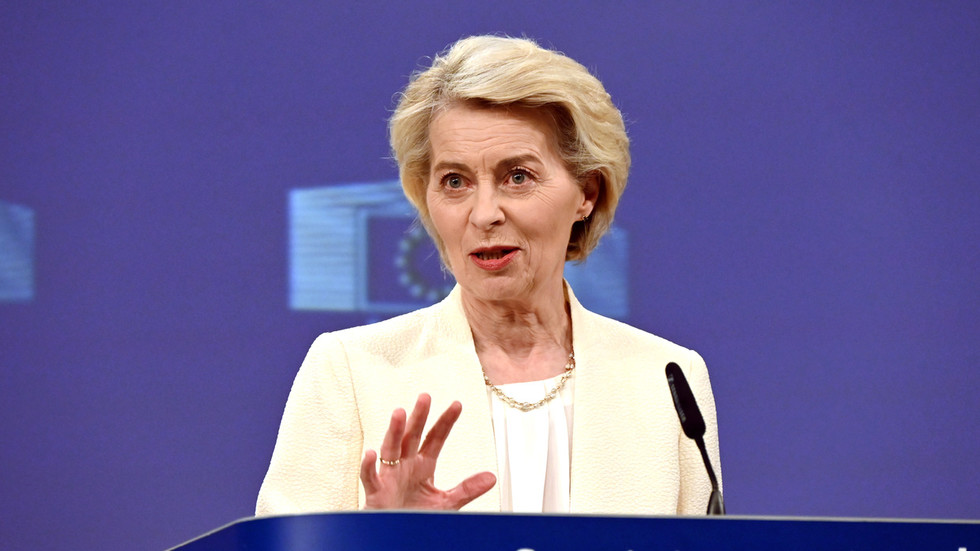The bloc’s curbs are just “fluctuations of air” for the Russian financial system, a high-ranking MP has said
The EU’s 18th sanctions package against Russia over the Ukraine conflict, targeting Moscow’s energy and banking sectors, has gone into force, the bloc has announced.
The new restrictions became official after the relevant regulations were published in the EU’s Official Journal on Saturday.
The package was adopted by the 27-member bloc on Friday after Slovakia, which had opposed the curbs, received guarantees from the European Commission regarding the availability of gas and oil.
Among other things, the sanctions banned transactions with 22 more Russian banks and the Russian Direct Investment Fund (RDIF) and forbid the use of the Nord Stream gas pipelines, which were crippled by underwater blasts in 2022 and remain inoperable.
The head of the Russian parliament’s Committee on Financial Markets, Anatoly Aksakov, told TASS on Friday that the new EU sanctions are just “fluctuations of air” for the country’s banks. Even medium and smaller financial institutions have long been prepared for the possibility of being disconnected from the Western SWIFT baking systems, Aksakov said.
Russia’s Yandex Bank and Ozon Bank, which were hit by the new restrictions, said on Saturday that their operations have not been affected by the development.
The sanctions also upgraded the EU price cap on Russian crude oil, fixed at $60 per barrel, replacing it with a dynamic mechanism that remains 15% lower than the average market price. It will now kick in from $47.6 per barrel.
The EU also added another 105 vessels to a blacklist of what Brussels calls a “shadow fleet” involved in transporting Russian oil, bypassing the bloc’s restrictions. This puts the overall number of tankers denied access to EU ports and service at over 400.
European Commission President Ursula von der Leyen welcomed the new sanctions, saying that they will remain in place until the Ukraine conflict is settled.
Russia has repeatedly expressed readiness to negotiate peace with Kiev, while accusing Ukraine and its Western backers of being unwilling to look for a long-term solution that would address the root causes of the crisis.
READ MORE:
Putin aide gives verdict on new EU sanctions
Kremlin spokesman Dmitry Peskov called the EU curbs “illegal,” but insisted that Russia has already obtained “a certain immunity” to them.
Read the full article here
